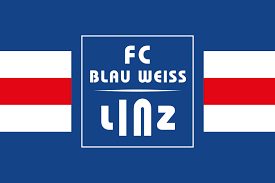
BW Linz FC
BW Linz FC is a prominent football club situated in Austria, known for its rich history and vibrant presence within the country’s football landscape. This article delves into the multifaceted aspects of BW Linz FC, examining its origins, development, cultural significance, competitive achievements, youth development strategies, and community engagement. Through comprehensive analysis, we aim to present a detailed portrait of this esteemed club that has played an influential role in shaping local football culture and nurturing sporting talent 69vn.
The Historical Evolution of BW Linz FC
Understanding the roots and historical trajectory of BW Linz FC offers valuable insight into how the club has evolved over decades. Its foundation, key milestones, and transformative phases reveal not only the club’s perseverance but also its adaptation to changing football environments both nationally and regionally.
Origins and Formation
BW Linz FC was founded in the mid-20th century, during a period characterized by rapid growth in Austrian football. The club emerged as a response to the increasing popularity of football among working-class communities in Linz, aiming to provide structured sporting opportunities and foster local pride.
Initially, BW Linz FC started as a modest amateur team competing in regional leagues. Its early years were marked by passionate local support, with the community rallying around its players and staff. The club’s establishment was driven by workers from various sectors, especially those associated with industries in Linz like steel and ironworks — hence the “BW” (likely an abbreviation linked to its original sponsorship or affiliation).
The foundational ethos emphasized community participation, development of talent at grassroots levels, and promoting fair play, values that continue to underpin the club’s philosophy today.
Key Milestones and Development Phases
Over the decades, BW Linz FC experienced significant milestones that reinforced its position within Austrian football. These included gradual promotions through regional divisions, establishing youth academies, and increasing infrastructure investments.
One of the most pivotal moments was the club’s entry into national competitions, which allowed it to showcase local talent on larger stages. This transition from local to national prominence involved overcoming various challenges, such as financial constraints, facility upgrades, and attracting skilled coaching staff.
Moreover, the club’s expansion into youth development programs marked a strategic shift towards sustainability. By fostering young talents, BW Linz FC aimed to cultivate homegrown players capable of competing at higher levels and ensuring the longevity of its competitive success.
Transformative Periods and Modernization
The 21st century brought about modernization initiatives for BW Linz FC. These included the adoption of advanced training methodologies, investment in club facilities, and embracing digital platforms for fan engagement. The club’s management recognized the importance of adapting to contemporary football trends to maintain competitiveness and relevance.
During this era, BW Linz FC also forged collaborations with other clubs and organizations, expanding its reach and resources. Such partnerships facilitated knowledge exchange, hosting youth exchanges, and organizing tournaments to increase exposure for their players.



